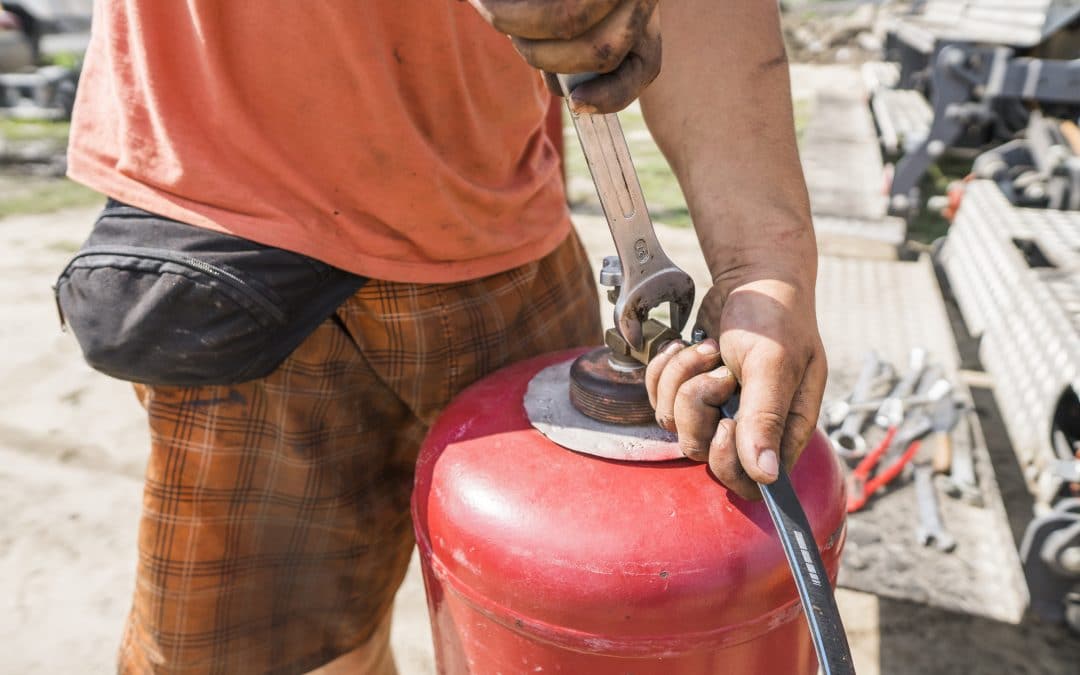Chlorine Valves – Why Solid Manufacturing, The Latest Technology (And Leak Checking) Matter
Here at Chemtech, we are proud to be an exclusive provider and distributor of the highest quality Sherwood brand valves for compressed gas cylinders and ton containers.
You need the highest quality products to ensure the safety of your personnel. And when it comes to chlorine cylinders, it is the little things that matter. Things like low-touch automation, infrared thermal imaging and leak checking
Sherwood has been around for nearly 100 years. Sherwood valves are made in the United States by the world’s leading provider of system-critical compressed gas solutions.
Their automated manufacturing processes eliminate 97% of all touch labor, resulting in predictability and higher-quality products. Sherwood is committed to quality and uses the latest technology such as infrared thermal imaging and leak checking to ensure the highest quality, reliability, and safety for your operations.
And this helps to lower costs so you can receive the highest quality for the lowest price. Sherwood also manufactures their own rod and raw forgings at their own foundry. These forgings are then machined into the bodies that they use. So you know what you are getting.
Our chlorine valves are approved per the Chlorine Institute Pamphlet 17 Alternate Design Criteria. The One-piece Monel® stem offers exceptional durability and positive shut-off in chlorine and other corrosive gas services, has large wrench flats on the valve body for easy installation and a robust Aluminum Silicon Bronze (C64210) valve body offers corrosion resistance.
———-
How To Handle Chlorine Valve Corrosion
Corrosion is just a fact of life when it comes to chlorine valves. Chlorine valves will get corrosion so it’s important to always to
- choose chlorine valves correctly
- do a periodic visual inspection of your valves
- maintain your chlorine valves
Even though valves are made from the highest quality materials, corrosion can occur due to the nature of chlorine gas and the environments where the cylinder and valves are being used and stored.
Over the years I have spent many days on customer site visits all over the world. A common concern from my clients is that their operators in the plant are scared of being exposed to chlorine gas.
They should be since chlorine gas is highly toxic and can be very dangerous when the storage materials aren’t maintained. Some operators tend to be over cautious and believe they are going the ”extra mile” by over-tightening the valves.
While this may seem like a good and logical idea, it isn’t! When you over tighten (torque) a valve, you are putting excessive pressure on the valve. Excessive tension over time will cause the packing nut to crack. Over tightening the valve can also put stress on the valve body causing it to crack and then releasing chlorine gas.
I always recommend to my customers to tighten the valve according to the specifications provided by the valve manufacturer. It’s there for a reason. Some people tend to spray ammonia on the valve to test for leaks. The problem with this method is that ammonia is also corrosive and that is why you sometimes see greenish color valves.
The most effective and safe way to test for leaks is to fill a bottle with ammonia solution, which has a wick. Place the ammonia saturated wick near the valve. If you start to see smoke at the wick, then you know you have a leak and you need to further tighten the valve.
By following proper safety protocols, accidents can be avoided. You can refer to the Chlorine Institute for further details on recommended chlorine valve safety.
